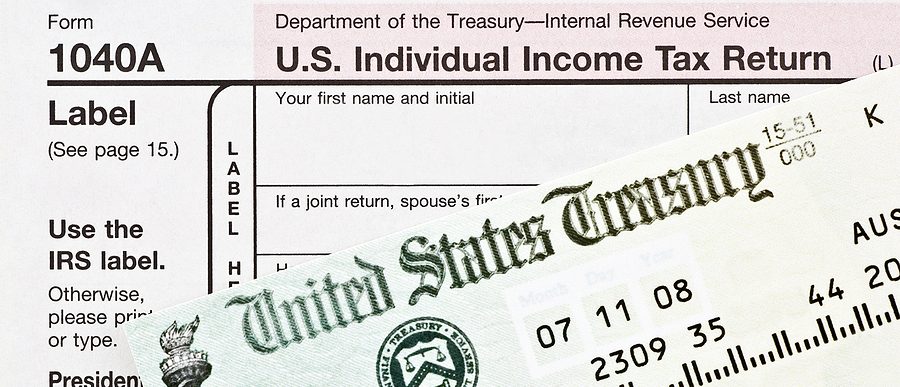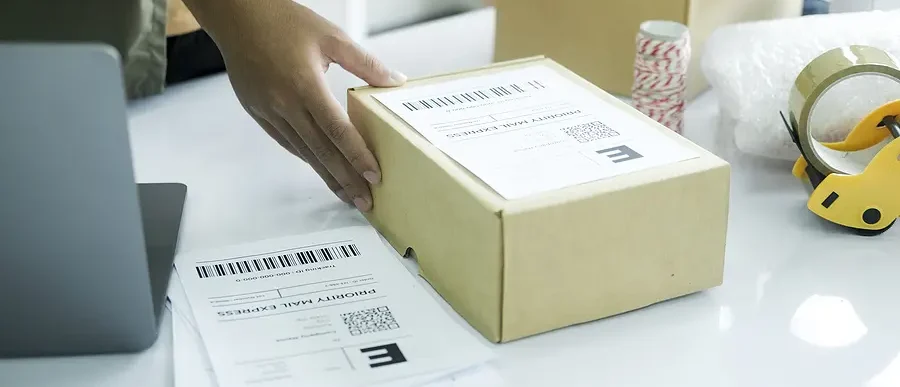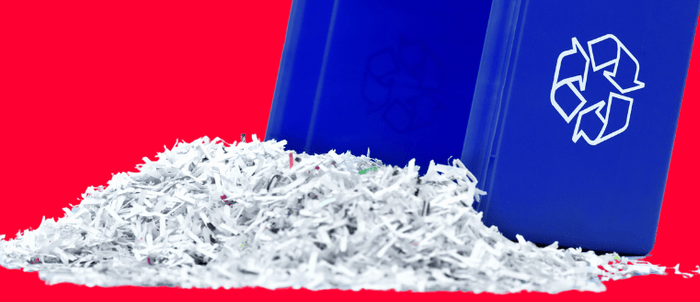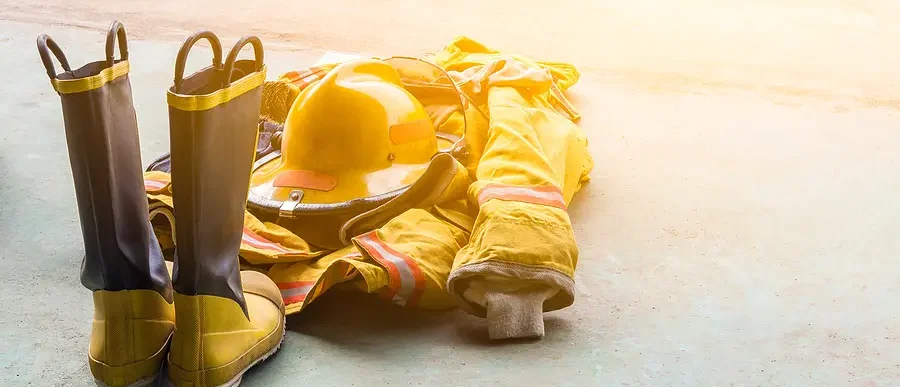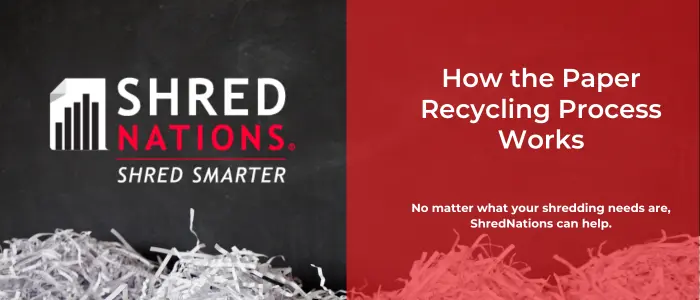
Even in today’s technological world, we use tons of paper products in our homes and offices every day. Whether you are coloring with your child, unboxing your latest Amazon purchase, or going through work documents; you are contributing to paper usage. The good news, however, is that the paper recycling process is effective, and paper usage doesn’t have to mean paper waste.
The US consumed approximately 65.6 million metric tons of paper and paperboard in 2021. Paper usage has declined from previous decades, but the numbers are still staggering, making paper recycling critical. Paper is very easy to recycle and can be repurposed five to seven times before it can no longer be used again.
Recycling paper not only conserves trees, but also saves oil, huge amounts of water, and energy. It can also benefit your business through recycling tax credits and attracting eco-conscious customers.
Paper Recycling Basics
Paper remains the most widely recycled material in the world. The majority of paper products are packaging and printing paper, which generally stay clean and are easy to identify as recyclable.
Plastics are used in a much wider variety of products, require sorting, and are not always easy to identify as recyclable. It is also easier to recycle paper because the process doesn’t require extreme heat to melt it down and form new products.
You can recycle nearly all types of paper with the exception of:
- Waxed paper
- Carbon paper
- Craft envelopes
- Paper towels, napkins, tissues, & toilet paper
- Plastic or foil-coated paper
- Sticky notes
- Paper contaminated with food or liquids
Shredded paper is not accepted by all recyclers. The small pieces can jam the recycling machinery and because of the size, the paper fibers are shorter and less useful in the recycling process. Rather than shredding and tossing the waste, a professional shredding company can safely destroy your documents and properly recycle the shreds for you.
The Paper Recycling Process
The paper recycling process varies a bit by locality, and can depend on the types of paper products the recycler in your area accepts. Make sure to check with your recycling facility before beginning the process. However, it typically follows this 5 step process.
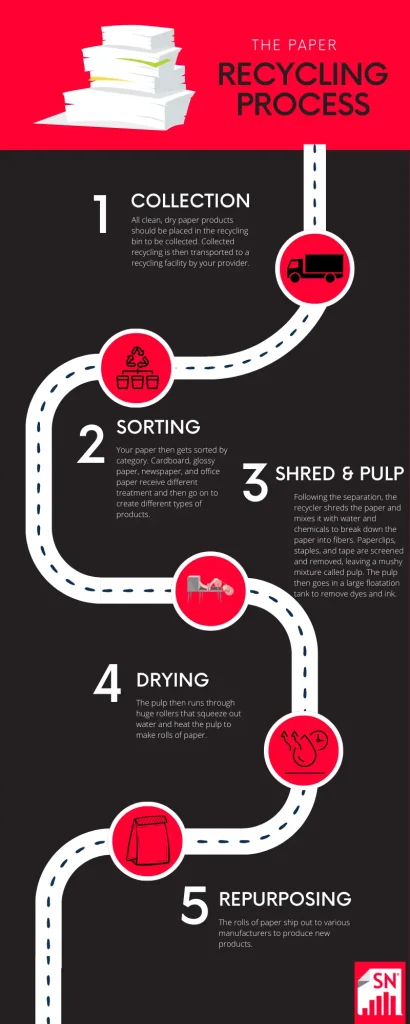
Step 1: Collection & Transportation
All clean, dry paper products should be placed in the recycling bin to be collected. Collected recycling is then transported to a recycling facility by your provider.
Step 2: Sort
Your paper then gets sorted by category. Cardboard, glossy paper, newspaper, and office paper receive different treatment and then go on to create different types of products.
Step 3: Shred & Pulp
Following the separation, the recycler shreds the paper and mixes it with water and chemicals to break down the paper into fibers. Paperclips, staples, and tape are screened and removed, leaving a mushy mixture called pulp. The pulp then goes in a large floatation tank to remove dyes and ink.
Step 4: Dry
The pulp then runs through huge rollers that squeeze out water and heat the pulp to make rolls of paper.
Step 5: Repurpose
The rolls of paper ship out to various manufacturers to produce new products.
New Products
Recycled paper goes on to make up a multitude of new products, even outside of the paper industry. Nearly half of all recycled paper goes into making containerboard, the material used to make cardboard boxes. A quarter goes into the production of tissue, boxboard, and printing paper. The rest can be found in a variety of products including:
- Paper bags
- Kitty litter
- Building insulation
- Papercrete & hybrid adobe
- Packaging & more
Recycle Your Paper with Shredding Services from Shred Nations
Shred Nations will help you find sustainable paper disposal options near you. We partner with shredding and recycling experts across the country to provide better options for your paper waste. To get started, call us at (800) 747-3365 or fill out the form to find a shredding partner to fit your needs. We will send you free, no-obligation price quotes on our services in just minutes.






